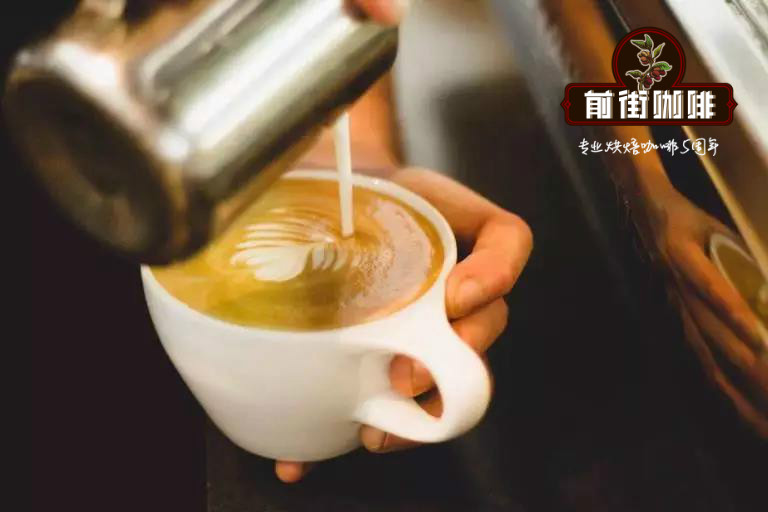Hawaiian Kona Coffee History Development Story Hawaiian Kona Coffee Unique Price High Reasons

Professional coffee knowledge exchange more coffee bean information please follow the coffee workshop (Wechat official account cafe_style)
The Kona Coffee Council in Hawaii is an organization of Hawaiian farmers who grow, process and sell the world's best coffee! Kona Coffee grows only in the Kona district on the west side of the island of Hawaii and has been developed for more than 175 years. These heritage trees thrive in a unique combination of sunlight, rainfall, location and volcanic soil-offered only in Kona to create our award-winning coffee.
Rocky volcanic slopes nurture it. The sunny morning ripens it. The hazy afternoon gave it a new look. It was carefully selected by 600 farmers.
Did you know that Kona, Hawaii is the only state in the United States that grows coffee commercially, and among the islands, only Kona can grow this kind of food? Because of our rock location and the fact that coffee cherries don't ripen at the same time, we can't harvest our trees mechanically. Because we have to check each bean, you can get the perfect cup of coffee, which is picked when it is ripe, not a combination of immature or overripe beans.
The first settlers from Hawaii arrived around 300-400 AD, probably from the Maxas Islands. They brought taro, peas, sugar cane, ginger, gourd, yam, bamboo, turmeric, kudzu and bread fruit trees. They also brought pigs, dogs, jungle chickens and possibly rats as stowaways. Many of these new species overwhelm native plants and animals, especially birds. Despite the lack of written language, they have built a tightly controlled society with oral and musical traditions. Hereditary chiefs hold a piece of land, and their people pay taxes to their leaders (crops or catches) and serve them as soldiers. Strict laws define what is prohibited and regulate the behavior of all sectors of society. There have been many wars between chiefs. Religion includes the worship of many gods and goddesses, representing war, life, death, and harvest
Europeans stumbled upon their search for the legendary Northwest Passage, a new spice route to the east. British Navy Captain James Cook arrived at Kauai in January 1778 to replenish his ship and was forcibly driven back by a winter storm in early 1779 and moored in Corackeku Bay in Cona. Hawaii has become an important stop for one of the world's major trade routes. The Hawaiian sheikh traded sandalwood for foreign weapons and goods, including cattle, goats and pigs, which quickly overtook the island and destroyed ground cover.
The era of missionaries began around 1820, and their religious beliefs soon overcame the ancient Karp system. Many of the churches they founded still exist today.
Kona Coffee Plantation, Hawaii-Coffee was originally brought to Kona from cuttings in Brazil by Samuel Reverend Ruggles, although it was not until the late 20th century that it became a consistent and valuable crop. It was grown on large plantations, but the collapse of the world coffee market in 1899 forced planters to lease the land to workers. Most of these workers are from Japan, and they lease between 5 and 12 acres of land to produce a large number of high-quality coffee crops as a family concern.
Family Farm-the tradition of family farming continues throughout Kona. Filipinos, continental Americans and Europeans have all joined the Japanese family-everyone strives to keep the farm productive, the crops as perfect as possible, and the family lifestyle calm. This family orientation gives rise to a sense of intimate community, with caution and compassion, and a warm welcome to all visitors.
Important Notice :
前街咖啡 FrontStreet Coffee has moved to new addredd:
FrontStreet Coffee Address: 315,Donghua East Road,GuangZhou
Tel:020 38364473
- Prev

The origin of Brazilian cafezinho coffee, Brazilians can not do without cafezinho.
For more information about coffee beans, please follow the Coffee Workshop (official Wechat account cafe_style) people can sit here and write books about Brazilian coffee, but if you want to read a good book about it, please go to your local library to find a copy of Vassouras: coffee County, Brazil, 1850-1890. The role of growers and slaves in changing society. Stan
- Next

The origin and formula of Spanish latte introduces the taste characteristics of Bombon coffee in Valencia, Spain.
Professional coffee knowledge exchange more information about coffee beans Please follow the coffee workshop (Wechat official account cafe_style) CafeBombon is very popular in Valencia, Spain, and gradually spread to other parts of the country. It may have been recreated and modified to suit European taste buds, such as in horses.
Related
- How did the Salvadoran coffee industry develop in Central America?
- What exactly does the golden cup extraction of coffee mean?
- The Origin of Coffee flower
- [2023 Starbucks World Earth Day] there are more meaningful things besides free Starbucks coffee!
- What kind of coffee is there in Spain? 9 Flavors of Spanish Coffee
- Aromatic African coffee| Kenya's coffee culture and historical production area
- Liberica Coffee Bean knowledge: the characteristics of Liberian Coffee beans of the three original species of Coffee beans
- The origin and formula of Spanish latte introduces the taste characteristics of Bombon coffee in Valencia, Spain.
- How to adjust the solution of over-extracted coffee
- What is the tasting period of coffee beans? What is the period of coffee and beans? How should coffee wake up and raise beans?

